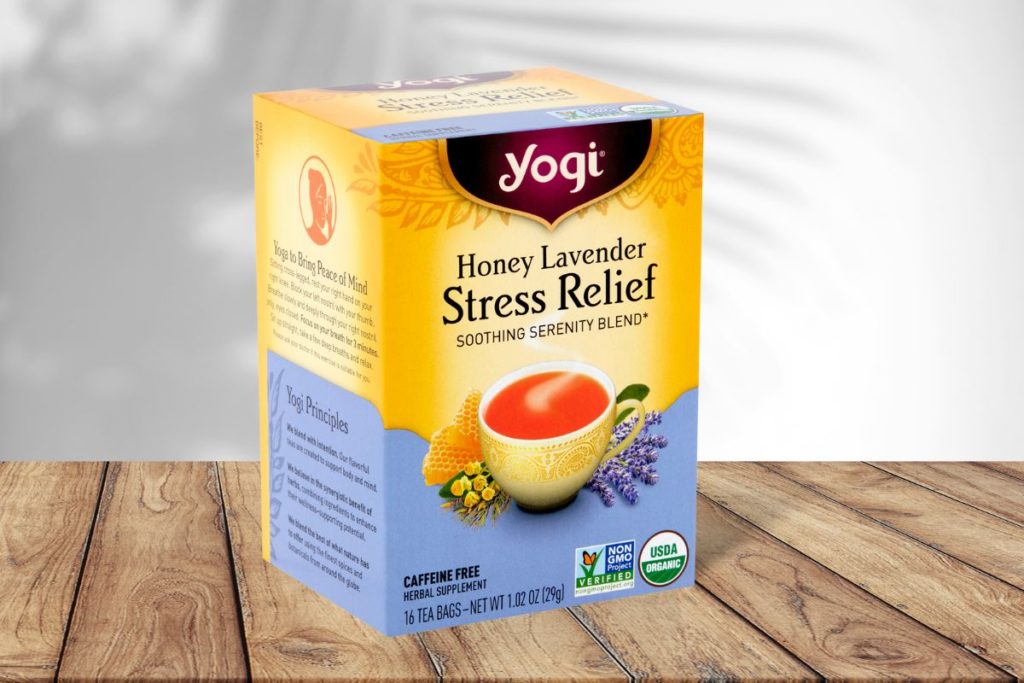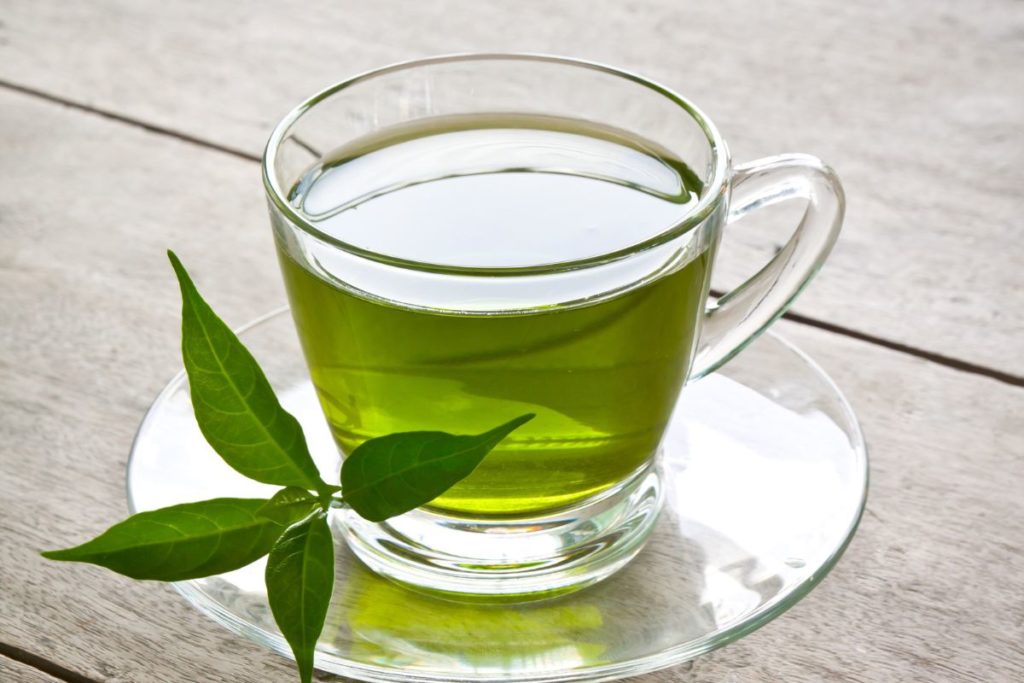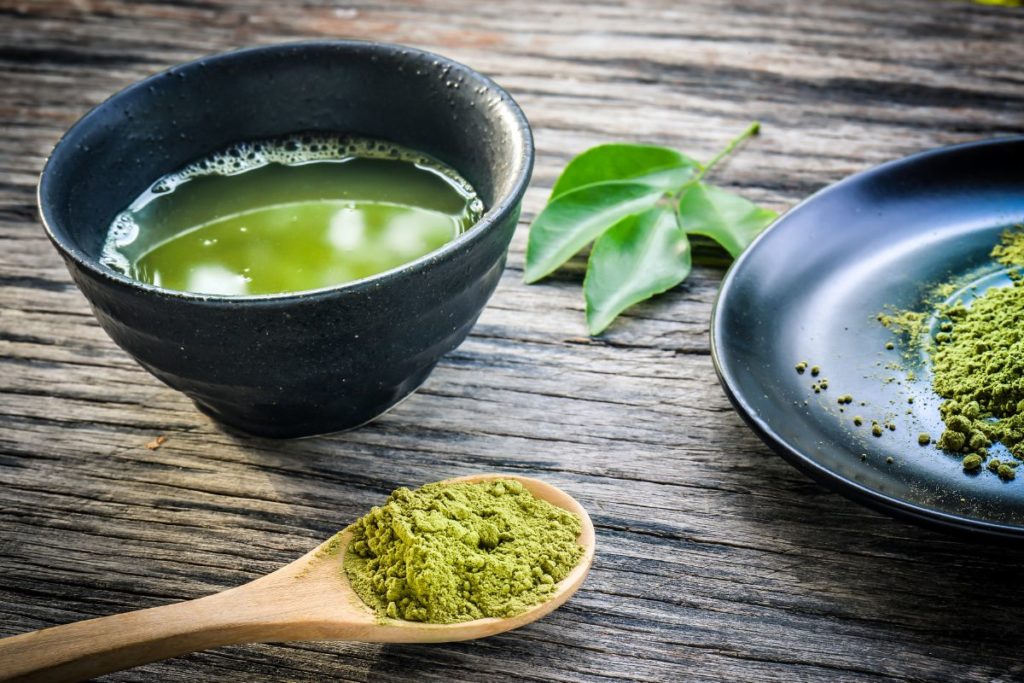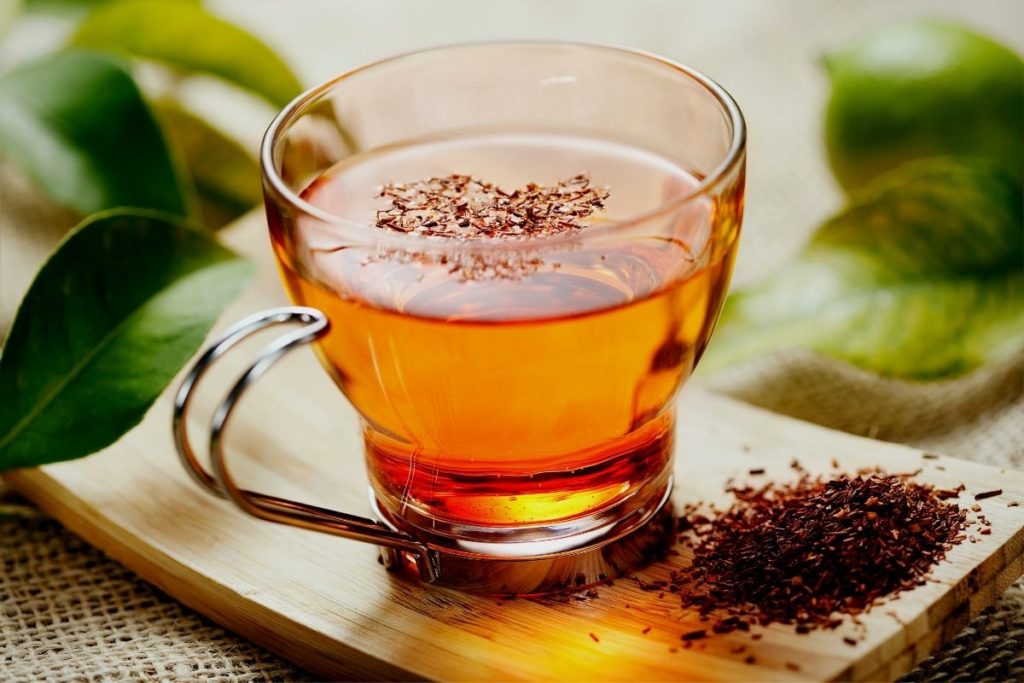Intermittent fasting can seem like a bit of a mystery, especially when it comes to what you can and cannot drink. So the question is, can you drink tea while intermittent fasting?
Tea is one beverage that often comes up during discussions about intermittent fasting, so today we’re exploring whether or not you can drink tea while you practice intermittent fasting and the pros and cons of doing so.
Can you drink tea while intermittent fasting?
You’ve been questioning whether you can drink tea while fasting, but the real question is, can you drink anything while fasting? The simple answer: no. You can’t drink anything during your intermittent fasting plan. Now let’s get into why.
During a fast, your body is in a state of metabolic stress. This means that it is consuming its own fat stores for energy. It is breaking down muscle, organ tissue, and other beneficial tissues for glucose. Your body is also depleting its stores of vitamins, minerals, and amino acids. Because of this, you need to rest and focus on repairing tissues and metabolizing fat.
If you introduce food or liquid, it’s going to push the body to shift from fat burning to glucose metabolism. This means that you will start to lose fat-burning benefits. Your body will break down muscle tissue and use amino acids to make glucose, which means that you may also experience muscle loss.
What Are the Benefits of Drinking Tea While Fasting?
Tea is one of the best beverages for health, and it has been shown to have numerous health benefits. Plus, it has a very low impact on blood sugar and insulin levels, which is why it can be consumed during a fasted state.
One thing to keep in mind, however, is that not all teas are created equal. Certain types of tea are high in caffeine and could break your fasting window. If you want the benefits of tea while fasting, we recommend choosing non-caffeinated teas, such as green or herbal teas.
How To Drink Tea During A Fast?
The first thing you need to do when you start intermittent fasting is to drink water. This will help your body to get rid of excess glucose and water, which will help your body to have a healthy blood sugar level. If you don’t drink enough water or if you have medical conditions that require you to drink more, you may find this difficult.
Another option is to drink a cup of water with a little bit of lemon or lime juice. This will help you to remove some of the extra sugar from your body’s lymphatic system. You can also try drinking a cup of unsweetened black tea with your meal. It has a higher concentration of antioxidants and nutrients that are good for your body. It’s important that you don’t sweeten your tea to get all the benefits.
Cons of drinking tea while intermittent fasting
There are many health benefits of consuming green and black tea, but there are also a few cons. One of the main cons of drinking tea while fasting is caffeine content. While most people consume tea to calm their nerves, tea can actually be very stimulating. This type of tea contains caffeine, which can increase your heart rate and cause you to feel jittery.
As mentioned above, not all teas are created equal. Certain types of tea, particularly black and oolong teas, are very high in caffeine and may break your fast. If you decide to drink caffeinated teas while avoiding coffee during your fasting period, to minimize the cons, we recommend consuming lower caffeine teas. Stick to green or herbal teas, such as chamomile or peppermint, which are naturally low in caffeine and keep you in a caloric deficit during periods of eating and fasting.
Depending on your goals, It wouldn’t hurt to check with your doctor, a dietitian or a certified personal trainer before you go in this direction.
How Much Tea Do I Need To Drink?
The recommended daily caffeine intake for an adult is 400 mg. That comes out to about three cups of black coffee or nine cups of black tea, 12 oz of cola, or 14 oz of brewed, instant tea, or ice tea. Most of us don’t get enough water, so don’t be afraid to add a tea bag into your daily routine.
It is a great way to up your hydration game, drink while fasting and get some extra antioxidants and other health benefits into the mix. If you’re trying to avoid taking black tea, you may want to try ginger tea or hibiscus, they are close to zero calories and an easy replacement.
What Types Of Tea Might Break A Fast?
Black or oolong teas are the ones most likely to break a fast. These types of teas are high in caffeine, which can stimulate metabolism and break down fasted muscle tissue. They may assist with intestinal movement if you’re attempting to detoxify or improve your digestion.
If intermittent fasting has become a weight loss or muscle gain goal for you, we recommend avoiding these teas during your fasting periods. Green and white teas are less likely to break a fast, but they still contain small amounts of caffeine. If you are sensitive to caffeine, we recommend avoiding these teas during your fasting periods as well.
The caffeine in black tea can also help you feel energized and alert. Herbal teas, such as chamomile and peppermint, are naturally caffeine-free and are a great choice for those who are fasting.
Yogi Tea: Healthy Fasting Tea
Yogi Tea is a way to break your fast without being too restrictive. It’s a natural, unrefined, and easy-to-digest tea that you can drink as you work, eat, or sleep. These drinks improve metabolic health and are made with green tea, black pepper, and ginger.

Spice up your Yogi Tea with this recipe
Instructions:
Add 1 teaspoon raw honey (organic if possible).
2 teaspoons fresh ginger (dried) or 1 tablespoon fresh ginger juice depending on how much you like it. Make sure you have a good amount of ginger!
2 sprigs of mint leaves or 2 sprigs of thyme leaves.
You can add more mint or thyme as needed to make this tea even more refreshing!
Mix everything together, cover with plastic wrap, and let sit overnight in the fridge before drinking!

Pique Tea: Organic Mint Green Tea
Having Pique Tea to end your fast is one of the finest experiences in the world of tea. The combination of mint and green tea leaves in Pique Tea is a perfect blend of all the elements that make tea enjoyable.
It’s refreshing, it’s invigorating, it’s energizing and it’s delicious. You can drink it whenever you feel like it. You can also make it as a hot beverage with water and ice.
You can drink Pique Tea every day if you want to and it will help you feel calm!

Matcha Green Fasting Tea: Green Tea and Green Tea Extract
Another option is to drink green tea as a tea in the form of Matcha. Matcha green fasting tea will give you an extra boost of energy and help improve your mood!
Matcha has been around for centuries now, but it was only recently that it gained popularity as an alternative way to speed up your metabolism! If you’re looking for a healthier alternative that can help you do things like exercise, weight loss, or even help you sleep better, then matcha green fasting tea is the best choice for you!
Typically this tea is prepared with milk or cream but that could hinder your fasting efforts. It’s best to have this with just water and add ice to make it refreshing.
Here are some other teas to try with many of the same benefits are:

Rooibos tea is a type of herbal tea that is made from the leaves of the South African red bush plant. This tea is naturally caffeine-free and is rich in antioxidants, which makes it a great choice for those who are fasting. Rooibos tea has a sweet and earthy flavor.
Chamomile tea is a type of herbal tea that is made from the flower heads of the plant Camellia sinensis. Chamomile tea is naturally caffeine-free and is known for its calming effects. This makes it a great choice for those who are fasting and looking to reduce stress levels. Chamomile tea has a sweet and floral flavor.
Hibiscus tea is a type of herbal tea that is made from the dried flower heads of the plant Hibiscus sabdariffa. Hibiscus tea is naturally caffeine-free and is rich in antioxidants. This makes it a great choice for those who are fasting and looking to improve their overall health. Hibiscus tea has a tart and fruity flavor that pairs well with honey.
Peppermint tea is a type of herbal tea that is made from the leaves of the peppermint plant. This tea is naturally caffeine-free and has a refreshing, minty flavor. Peppermint tea is a great choice for those who are fasting because it can help to settle the stomach and relieve bloating.
Ginger tea is a type of herbal tea that is made from the root of the ginger plant. This tea is naturally caffeine-free and is known for its health benefits. Ginger has been used for centuries in traditional medicine to treat a variety of ailments. Some of the claimed health benefits of drinking ginger tea include: relieving nausea, reducing inflammation, and boosting immunity.
Lemon tea is a type of herbal tea that is made from the peel of lemon fruit. This tea is naturally caffeine-free and has a tart and tangy flavor. Lemon tea is a great choice for those who are fasting because it can help to improve digestion and stimulate weight loss.
Turmeric tea is a type of herbal tea that is made from the root of the turmeric plant. This tea is naturally caffeine-free and is rich in antioxidants. Turmeric has been used for centuries in traditional medicine to treat a variety of ailments. Some of the claimed health benefits of drinking turmeric tea include: reducing inflammation, boosting immunity, and fighting cancer.
Cold-brewed tea is a type of tea that is brewed in cold water instead of hot water. This brewing method results in a less bitter and more flavorful cup of tea. Cold-brewed tea is a great choice for those who are fasting because it is less likely to irritate the stomach. To make cold-brewed tea, simply add tea leaves to a pitcher of cold water and let it steep overnight in the fridge. In the morning, strain the tea leaves and enjoy your refreshing cup of tea.
These are just a few of the many teas that you can enjoy while fasting. There are endless possibilities when it comes to tea, so be creative and experiment to find the perfect one for you!
The Best Tea for Intermittent Fasting
We recommend consuming green tea for a good intermittent fasting regimen. Green tea is packed with antioxidants, which help cells repair and protect against free radicals.
It also contains l-theanine, an amino acid that is thought to have a calming effect and be beneficial for stress and anxiety. We recommend drinking about two to three cups of green tea per day while intermittent fasting.
Why Is Green Tea The Most Useful?
Green teas are great for breaking a fast because they are high in fiber, which helps the body break down food and make better energy. Green teas also contain flavonoids and other antioxidants, which may help your body break down food. Green tea also contains vitamin C, which is a powerful antioxidant that helps your body heal itself.
How to Boost Fasting results With Tea
While tea improves the benefits of intermittent fasting, it’s important to consume it at the right time. One thing to keep in mind is that, while green and herbal teas are beneficial for health and won’t break a fast, they take longer to digest than black tea.
They won’t give you an energy boost until they are fully digested. If you want to boost your energy, we recommend fasting with tea. It’s been found to give an energy boost within 15 minutes.
Boosts Weight Loss Results
While green tea has been shown to help weight loss, it’s important to consume it at the right time. One thing to keep in mind is that, while green and herbal teas are beneficial for health, they will take longer to digest than black tea. This means that they won’t give you an energy boost until they are fully digested.
Tea Helps increase satiety and cravings
People who drink green tea are able to feel satisfied after they’ve consumed it. This is because the caffeine in green tea has been shown to reduce cravings and increase satiety.
This is why it’s essential to consume green tea during the fast. Another benefit of drinking green tea is that it can enhance your satiety by increasing your cravings.
Tea Supports calmness and relaxation
If you’re feeling a little stressed, green tea can help calm you down. It’s also been shown to improve your mood. This is because it helps to reduce anxiety, which is a common stressor in the fast.
Another benefit of drinking green tea during the fast is that it can help relieve tension and decreases stress hormones such as cortisol and adrenaline. Green tea has also been found to support autophagy, soothe an upset stomach, and increase clean energy levels, which makes it a great choice for the fast.
Final words
Intermittent fasting is an incredible way to boost your health and lose weight. What’s more, it doesn’t require you to go hungry or deprive yourself of anything. While it is important to be mindful of what you consume during a fast, it’s also important to remember that you can still benefit from tea’s antioxidants, vitamins, and minerals. If you are a beginner, it is best to ease into your fasting schedule. Instead of going 12 hours without eating, try an 8-hour fast, like from 8 am to 4 pm. As you get more comfortable with fasting, you can increase the number of hours you go without eating.





